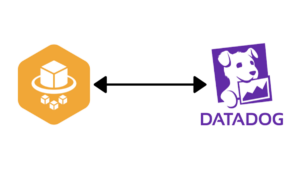Posts Tagged ‘IronWorker’
Monitor ECS Applications on AWS Fargate With Datadog
Datadog and AWS Fargate together allow users to collect real-time, detailed ECS metrics about the containerized tasks they run. With Datadog Autodiscovery, you can even autodetect containerized services that use Fargate to configure the Datadog Agent for those services with no API or manual changes necessary. Iron’s serverless tools can bring you a greater level of flexibility,…
Read MoreIronWorker CaaS Worker: Azure Function Setup
In this article, we will tell you the steps you need to set up Azure Function for IronWorker. Setup Outline: Create Function App Create the Function Function Code Limits Costs Notes Security Pros & Cons In Azure Function, we need first to create a Function app which is the logical management and execution container for…
Read MoreIronWorker CaaS Worker: Azure Container Setup
In this article, we will tell you the steps you need to set up Azure Container for IronWorker. Setup Outline: Create Container Instance Trigger the App Limits Container Instances Costs Notes Security Pros & Cons 1. Crate Container Insurance From the top search input search for “Container instances”, and click on “Create” on the container…
Read MoreIronWorker CaaS Worker: AWS Fargate Setup
In this article, we will tell you the steps you need to set up AWS Fargate for IronWorker. Setup Outline: Store Docker Image on ECR Creating the Task Definition Create the ECS Cluster Create Task service Limits Security AWS Fargate Cost Achieve Cloud Elasticity with Iron Speak to us to find how you can achieve…
Read MoreGoogle Cloud Functions Alternatives
For those who are yet unfamiliar, Google Cloud Functions is a serverless environment that is used by a wide variety of developers. It enables programmers to write simple functions and attach them to events related to their cloud infrastructure. It’s a fully managed environment, which means there is no need to allocate servers or other equipment in order for…
Read MorePagerDuty and IronWorker Integration
Time-critical incident reports are essential for async task processing. With a tool like IronWorker, running tasks is almost always a seamless process. It all happens in the background, away from the main application framework, allowing you to get on with other aspects of your business. In most cases, you just wait for the task to finish.…
Read MoreIronWorker vs. Ruby/Rails Worker
Overview Architecture: IronWorker is an on-demand async task processing software for container-based workloads. Ruby on Rails (or Rails) is a server-side web application framework written in the programming language Ruby. Note: A “worker” on IronWorker Rails is a priority queue system that executes tasks outside of the application framework. IronWorker is created on the Docker container…
Read MoreWhat Is FaaS?
Overview Technological trends over the last decade have made it possible for organizations to rely on “as a service” models. Instead of purchasing software, companies can pay service providers for access to the specific tools and services that they need. FaaS, which stands for “function as a service,” provides a robust, cloud-based approach to helping…
Read MoreIronWorker vs. Dynos
Overview Architecture: IronWorker is a hosted job processing solution that lets you manage container-based workloads. Dynos are isolated Linux containers in Salesforce Heroku that facilitate code based on various commands. Purpose: Use dynos to execute code for specific commands. Use IronWorker to manage and schedule these containers. Scalability: Both IronWorker and dynos scale but in different ways.…
Read MoreIronWorker vs. Sidekiq
Overview Architecture: IronWorker is a server-less on-demand task processing solution for managing container-based workloads. Sidekiq is a background processing tool that handles various jobs at the same time. Language: IronWorker is “language agnostic.” It runs in a multi-language containerized environment. Sidekiq runs on Ruby. Scalability: IronWorker is a lot easier to scale than Sidekiq. Price: IronWorker…
Read More

